Facial or Dental Emergencies — Houston, TX
Quickly Relieving Pain & Restoring Smiles
No matter how many precautions you take, a dental emergency can strike when you least expect it. Either of our two Houston oral surgeons, Dr. Weil and Dr. Koo, or a backup dentist are on call at all times. If you have a facial or dental emergency in Houston during normal office hours, please call the oral surgery office. If you are a patient of record (you have been seen in the oral surgery office by our oral surgeons previously) and you need assistance after business hours, you may call the oral surgery office number to have the answering service page the dentist. To learn more about navigating these urgent situations, continue reading or contact us as soon as possible for assistance.
Why Choose Piney Point Oral & Maxillofacial Surgery for Emergency Dental Care?
- Same-Day Emergency Appointments
- Advanced Dental Techniques and Technologies
- Multiple Financing Options Available
What to Do in a Dental Emergency
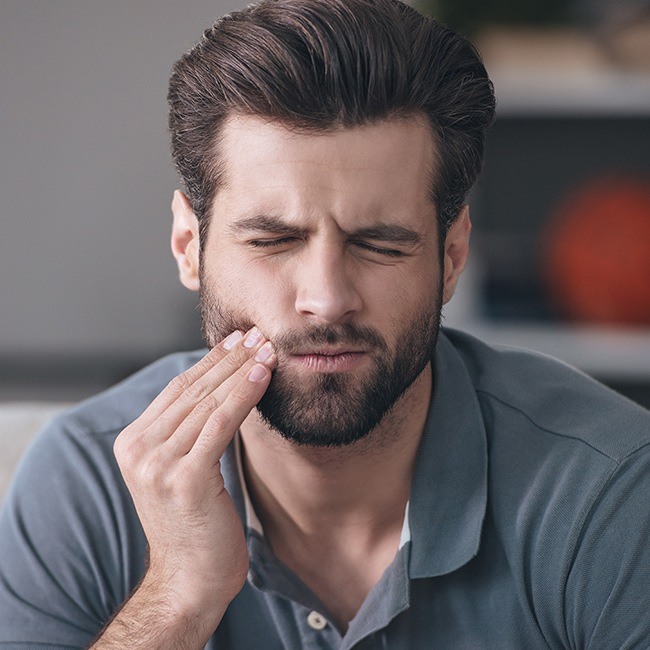
- Contact us right away. The sooner you give us a call, the better chance we have of restoring your oral health that very same day. We’ll do our best to address your emergency as soon as possible. Over the phone, a team member will walk you through basic first-aid instructions until you reach us.
- Have an emergency exam. When you get to our office, we’ll examine your mouth to identify the cause of your emergency. Depending on your situation, we may also be able to relieve any serious pain you’re in.
- Review your options. After your examination, our team will review our findings with you. We’ll explain your treatment options and work with you to create a custom treatment plan that’ll get your smile back to normal.
- Get the care you need. We’ll work quickly to repair your smile and protect your teeth. Rest assured – we’ll always focus on your health, safety, and comfort.
The Most Common Dental Emergencies
From dental injuries to severe tooth infections, we’re happy to handle a wide variety of dental emergencies. When you call our oral surgery office, we’ll ask you to describe your symptoms as clearly as possible; we’ll then give you advice on performing first aid so that the damage doesn’t get any worse before you get to our oral surgery office. Below, you can find tips that will help you deal with a variety of dental emergencies on your own while waiting for an emergency appointment.
Soft Tissue Facial Injuries
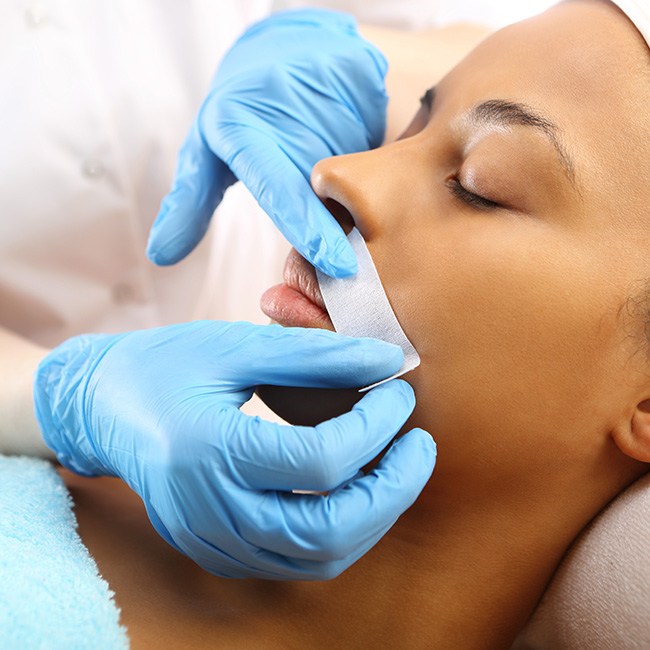
Soft tissue facial injuries are classified as ones involving the skin and/or the gum tissue and can happen for a wide variety of reasons, from rough falls to sports games to work-related accidents. Thankfully, the Piney Point team is well-versed in diagnosing/treating all types of lacerations. With precise suturing, we’re able to repair the damage effectively while also taking care to minimize any cosmetic impacts that patients understandably may be concerned about.
Bone Injuries of the Maxillofacial Region
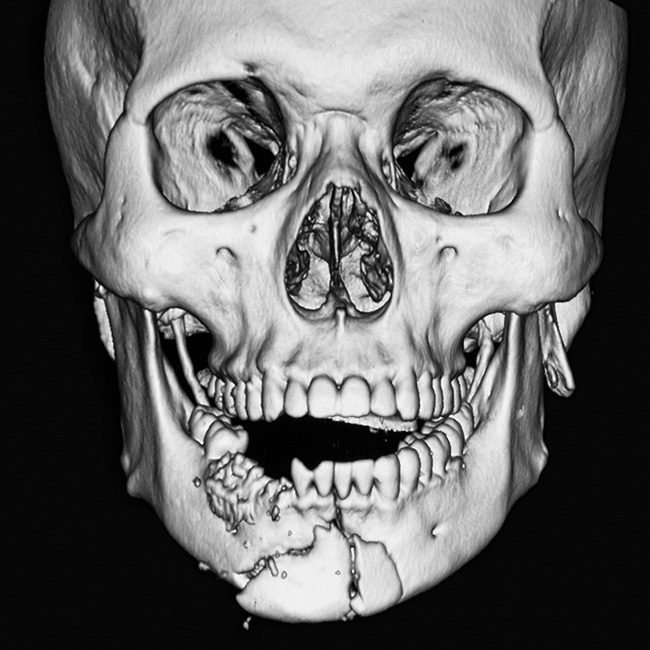
Fractures in the face are treated very similarly to fractures that could occur in any other part of the human body. Our approach will depend on several important factors, including the severity of the fracture, the patient’s age/general health, and the specific location. Since casts cannot be placed on the face, we must utilize other ways to stabilize the bone and facilitate healing. This could involve small places, screws, or wiring – whatever we determine will result in the smoothest recovery and a minimal impact to the patient’s appearance.
Understanding the Cost of Emergency Dentistry
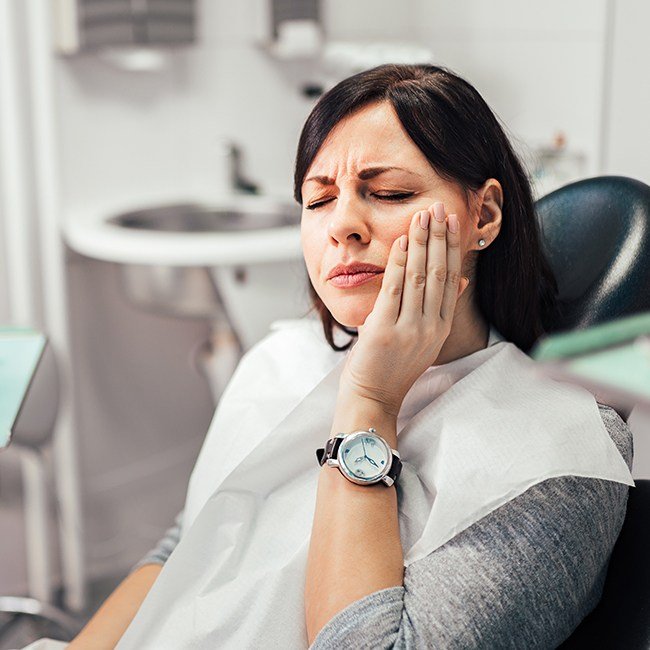
No two dental emergencies are the same. Even two patients who both have cavities could have slight differences in their cases that call for different kinds of treatment. No matter what the issue is, however, seeing us as soon as possible is generally the best way to keep your out-of-pocket costs down; that way, we can begin the treatment before the situation becomes more complex and costly to treat. We’ll also discuss dental insurance and financing options to make your care more affordable.
Every Dental Emergency Is Different
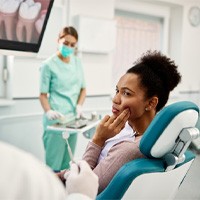
An emergency exam is relatively affordable. During the appointment, we will evaluate the situation so we can recommend a treatment.
Emergency treatment itself can come at a wide variety of different prices. It depends on the type of surgery we must perform, the extent of the surgery, and the type/amount of sedation used. For example, removing one wisdom tooth with local anesthesia will cost significantly less than removing four impacted wisdom teeth with the aid of IV sedation.
You can trust our team to always be upfront with you about pricing. We do not want you to run into any unpleasant surprises when the time comes to pay for your treatment.
Taking Care of Your Smile Can Save You Money
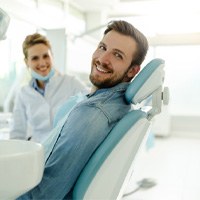
Some emergency cases arise as the result of inevitable circumstances, such as a tragic accident. In other instances, though, emergencies could have been avoided if more precautions were implemented. Here are a few basic things you can do to minimize your dental care costs:
- Take great care of your smile. Regular visits to your general dentist, thorough oral hygiene, and a balanced diet can do much to preserve the health of your teeth.
- Seek care as soon as you notice that something is amiss. Delaying treatment can allow your condition to worsen, leading to the need for more complex (and more expensive) treatment. Call us or your general dentist for guidance whenever you suspect that you require oral care.
Does Dental Insurance Cover Dental Emergencies?
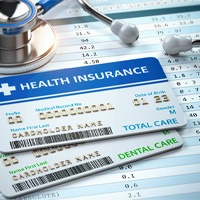
Dental insurance typically covers one emergency exam by a general dentist each year. However, because we are a specialty practice, your policy may work a little differently when you visit us. Also, keep in mind that while some of the emergency services we perform, like complex tooth extractions, are often partially covered by dental insurance, other treatments may not be. For example, surgery for bone injuries is more likely to be covered by medical insurance.
Our team will help you navigate your benefits and understand how they apply to your unique situation.
Other Options for Making Dental Emergencies Affordable

While your insurance may cover part of your care, it is unlikely to cover all of it. If you cannot pay your entire out-of-pocket obligation at once, ask us about third-party financing. We may be able to help you apply for a low-interest payment plan. Most patients who apply are approved for credit.
The Piney Point OMS team is ready to answer your questions about the cost of emergency oral surgery. Contact us today so we can help you understand the road ahead.
How to Prevent Dental Emergencies

Our team is always ready to assist you if you face an emergency that requires the care of an oral surgeon. However, wouldn’t you agree that it is better to prevent such emergencies from occurring in the first place? Continue reading below to discover helpful tips that will protect your precious smile.
Visit Your General Dentist Regularly
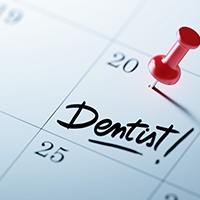

Your general dentist is one of your first lines of defense against dental emergencies. Try to visit them once every six months for a cleaning and checkup. The checkup will reveal whether you have any developing oral health issues that require treatment, either by your dentist or our team. The cleaning portion of your appointment will remove plaque and tartar that might otherwise lead to cavities.
Maintain Good Oral Hygiene Habits at Home


Poor oral hygiene habits can allow decay and gum disease to devastate your oral health, leading to the need for tooth replacement, bone grafts, and other major procedures. To maintain a clean mouth, you should:
- Brush your teeth at least twice a day. Be sure to use a soft-bristled brush and fluoridated toothpaste.
- Floss daily. Use old-fashioned string floss, and be sure not to “snap” it between your teeth.
- Drink plenty of water. This can rinse away food particles and bacteria.
Watch What You Eat


Missteps in how and what you eat can increase your risk of a dental emergency. Be sure to limit your intake of sugary and acidic foods, such as soda, candies, and desserts. You should also avoid hard foods that might break your teeth. Try to center your diet on items that are rich in nutrients that support oral health. Dairy products, as well as fresh fruits and vegetables, can all help your smile to thrive.
Wear a Mouthguard
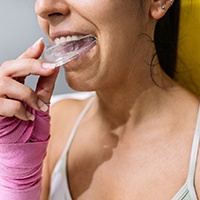

There are two types of mouthguards. If you tend to grind your teeth at night, you should use one that places a protective barrier between your upper and lower dental arches. It can prevent your teeth from harming one another.
If you play sports, you should wear a mouthguard that designed for use on the field or court. It can greatly reduce the risk of severe injuries to your teeth and soft oral tissues.
Use Tools, Not Teeth, to Open Packaging
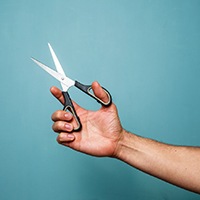

It can be tempting to use your teeth to open boxes, bottles, and other containers. Doing so is not wise. You could easily chip a tooth or cause significant premature wear and tear on your enamel. If you have dental implants, you could damage one of your restorations or place too much pressure on the underlying implant post. It is always best to use scissors or another appropriate tool to open packages.
Emergency Oral Surgery FAQs

The team at Piney Point Oral & Maxillofacial Surgery is ready to leap into action to help patients who are in urgent need of our services. Before you save our number in your phone, though, you may want to know more about emergency oral surgery and how you can prepare for various situations. To assist you, we have provided the following list of frequently asked questions, along with to-the-point answers. Call us directly if you would like further explanation on anything you discover here.
Can the Emergency Room Remove a Tooth?
Only licensed dentists and dental specialists are legally authorized to perform tooth removal. Most hospitals do not have anyone on-staff who is able to perform the procedure. At best, they may provide antibiotics and pain medication as they instruct you to visit a qualified oral health professional as soon as possible.
If you believe you need a tooth removed, it would be best to visit an oral surgeon or your general dentist. After a thorough exam, they might even determine that your tooth is salvageable and does not need to be removed at all.
What Is Causing My Jaw Pain?
Jaw pain can have a number of different causes, ranging from broken bones to TMJ dysfunction. Our team can take images of your oral structures, evaluate the functioning of your jaw, and recommend your next steps. We are able to provide a number of different treatments for TMD. We can also perform surgery to help mend broken facial bones.
Should I Visit the Emergency Room First for Dental Emergencies?
Exactly where you should go depends on the specifics of your situation. If you are bleeding excessively from the mouth, have swelling that is interfering with your breathing, believe you have a broken jaw, or are experiencing any other life-threatening symptoms, the emergency room should be your first stop.
In other situations, your priority should be to see a dental professional as soon as possible. Most hospital emergency rooms are not equipped to handle issues like jaw pain, toothaches, complications after oral surgery, and other issues that related directly to dental health. Give our office a call, and we will let you know whether you should visit us or make the trip to see your general dentist.
What Should I Keep in My Emergency Dentistry Kit?
Having an emergency dentistry kit can help you to minimize your pain and protect your oral health while you are waiting to see a qualified oral health practitioner. Here are some items it would be wise to keep on hand:
- A small storage container to hold teeth or lost restorations.
- Sterile gloves
- Dressings and gauze pads
- Cotton balls
- A temporary filling material
- Dental cement
- Petroleum jelly
- An oral analgesic
- Painkillers
- An ice pack
- Contact information for your general dentist and our oral surgery practice
- Your dental insurance information
Wisdom Teeth Extractions Oral & Maxillofacial Pathology Oral Cancer Orthognathic Surgery Dental Implants Pre-Prosthetic Surgery Facial Trauma Treatment Apicoectomy Surgery Cleft Lip & Palate Surgery TMJ Treatment Corrective Orthodontic Surgery Sleep Apnea Treatment Anesthesia & Sedation Dentistry Cosmetic Facial Treatments View Our Services

